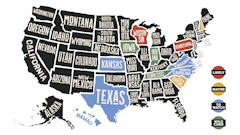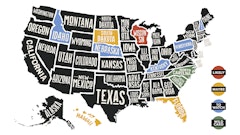[Press release] CONCORD, N.H. — The state House of Representatives overwhelmingly approved HB 640 on Wednesday (318-36), bringing New Hampshire one step closer to becoming the final state in New England to decriminalize marijuana possession. The bill will now be considered by the Senate.
HB 640, sponsored by Rep. Renny Cushing (D-Hampton) and a bipartisan group of 10 co-sponsors, would reduce the penalty for possession of one ounce or less of marijuana from a criminal misdemeanor, which is currently punishable by up to one year in prison and a fine of up to $2,000, to a civil violation punishable by a fine of $100 for a first offense, $200 for a second offense within three years, and $350 for a third or subsequent offense within three years of two previous offenses.
“Most representatives agree it is time to stop wasting limited public resources on arrests for simple marijuana possession,” said Matt Simon, the Manchester-based New England political director for the Marijuana Policy Project. “We hope their colleagues in the Senate will agree that our tax dollars and law enforcement officials’ time would be better spent addressing serious crimes.”
HB 640 has faced much less opposition than similar bills that failed in recent years. Only one person testified against it at a public hearing on February 1, and the House Criminal Justice and Public Safety Committee, which voted 7-6 last year to kill a similar measure (HB 1631), approved HB 640 14-2. Additionally, Gov. Chris Sununu has consistently said he supports decriminalizing possession of small amounts of marijuana, whereas previous governors have been opposed.
“There is very little public support for continuing to criminalize marijuana consumers,” Simon said. “Marijuana is objectively less harmful than alcohol, and a strong majority of Granite Staters want the Legislature to start treating it that way.”
More than seven out of 10 Granite Staters (72%) would like to see the Legislature decriminalize or legalize marijuana, according to a WMUR Granite State Poll conducted by the University of New Hampshire Survey Center in July 2016.
























